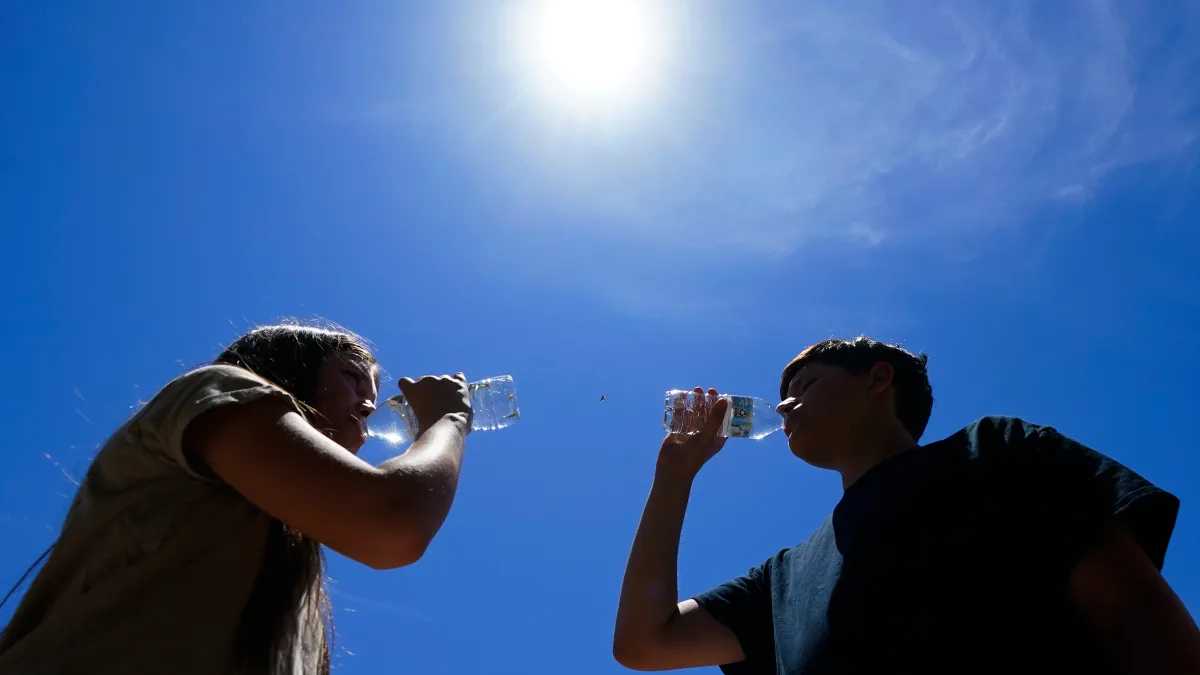US: Six safety tips to avoid heat stroke
Life-threatening heat is enveloping the eastern U.S, with some cities bracing for what could be their highest temperatures in over a decade.
On Monday, the heat index is expected to skyrocket to 98 degrees in New York City; 107 degrees in Philadelphia; 109 degrees in Richmond, Virginia; and 106 in Raleigh, North Carolina, and Charleston, West Virginia. Temperatures are forecast to be slightly higher on Tuesday.
Doctors recommend taking excessive heat warnings and check tips to avoid heat stroke in the US. Over 700 people die from heat-related illnesses every year, according to the Centers for Disease Control and Prevention, and extreme heat is considered the deadliest weather-related hazard in the U.S., according to the Fifth National Climate Assessment.
A heat wave is a continuous period of abnormally hot weather, generally lasting over two days, according to the National Weather Service.
A few tips for staying safe and avoid heat stroke in the US
In the Midwest and the Northeast, a heat wave is considered three or more days in a row of temperatures of at least 90 degrees. But in Phoenix, for example, temperatures are regularly well above 90 degrees and into the triple digits without it being from a heat wave. So a heat wave is relative to the local average temperature and may require temperatures to be significantly above normal for several days, according to the NWS.
Here are tips to stay safe from the heat from the CDC:
Wear sunscreen
Take precautions to prevent sunburn, which can make you dehydrated and affect your ability to cool down.
Use sunscreen that’s SPF 15 or higher 30 minutes before going outside. Sunscreens that say “broad spectrum” or “UVA/UVB protection” are best.
Stay hydrated
Drink extra fluids, and don’t wait until you’re thirsty.
Avoid very sugary drinks and alcohol, which can cause your body to lose more fluid, and be wary of extra-cold drinks that may cause stomach cramps.
Avoiding hot and heavy meals also can reduce your body’s overall temperature.
Limit time outside
Cut down on exercise during heat waves and rest often and in shady areas.
Try to limit your time outside to when it is cooler, like in the early morning and evening.
Check the car
Never leave children in a parked car — even if windows are cracked open.
Monitor high-risk loved ones
Anyone can suffer from heat-related illness at any time, but these people are at greater risk:
— Babies and young children
— Overweight people
— Those 65 years old or older
— People who overexert during work or exercise
— Those who suffer from heart disease or high blood pressure and those who take certain medications, including for depression, insomnia or poor circulation
Watch for signs of illness
Symptoms of heat stroke include:
— Body temperature of 103 degrees or higher
— Hot, red, dry or damp skin
— Fast, strong pulse
— Headache
— Dizziness
— Nausea
— Confusion
— Passing out
— No longer sweating
— Heavy sweating
— Cold, pale, clammy skin
— Fast, weak pulse
— Nausea or vomiting
— Muscle cramps
— Feeling tired or weak
— Headache
— Passing out
Here are some tips from the American Society for the Prevention of Cruelty to Animals for how to keep your pets safe in the heat: provide plenty of fresh water so they don’t get dehydrated; don’t over-exercise pets; never leave pets alone in a parked car; and watch for symptoms of overheating, which include excessive panting, difficulty breathing, increased heart and respiratory rate and drooling.
ALSO READ TOP STORIES FROM NIGERIAN TRIBUNE


